Summer is Here! Eye Health and Contact Lens Tips for the Hot Season!
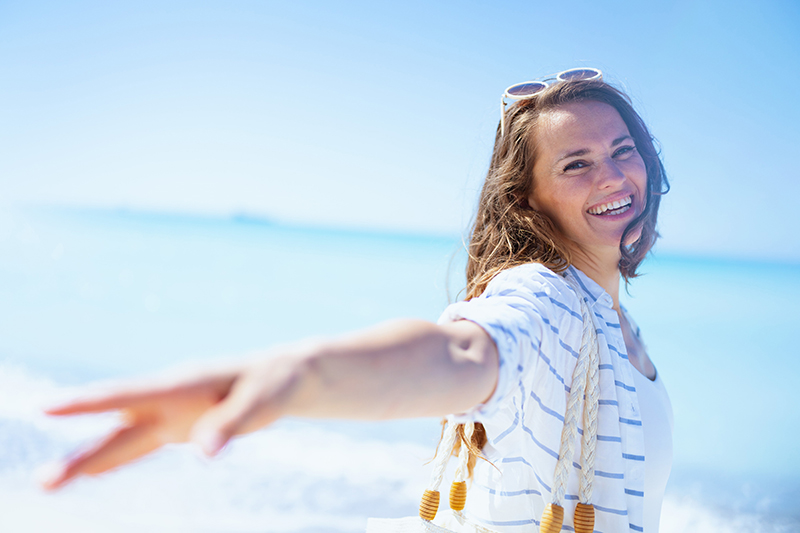
As the holiday season approaches, excitement is in the air—especially in the Southern Hemisphere, where Christmas and New Year's align with the summer months. It's a time to embrace the warmth, sunshine, and outdoor gatherings, making it the perfect opportunity for beach days, lakeside relaxation, and family get-togethers.
Whether you're planning a long vacation or a quick weekend getaway, the summer season offers plenty of chances to enjoy the outdoors. However, with all the fun in the sun, it's also important to think about the health of your eyes and the care of your contact lenses.
Are you aware of the key things to keep in mind when it comes to eye health, contact lens care, and wearing them during the summer months?
In this blog post, we'll share some essential tips for wearing contact lenses in the summer, helping you stay comfortable and keep your eyes healthy while enjoying the sunny season.
Summary
- Take Proper UV Protection Measures!
- What to Do During Swimming and Beach Activities?
- Prevent Eye Dryness!
- Be Careful About Where You Store Your Contact Lenses in Summer!
- Things to Keep in Mind When Caring for Your Contact Lenses
- Even Glasses Wearers Can Enjoy Easily with Daily Lenses!
Take Proper UV Protection Measures!
New Zealand's majestic nature and clear air captivate not only us but people from all around the world. Especially in the summer, the bright sunlight lifts our spirits and energizes us. However, we must not forget that behind this beautiful sun lies "ultraviolet (UV) radiation," which can have an impact on our health. New Zealand is known for having very strong UV levels, making it extremely important to regularly practice UV protection. Do you have a solid understanding of UV and the measures to protect yourself?
What is UV?
Ultraviolet (UV) refers to the shortest wavelength of sunlight that reaches the Earth's surface. It is abbreviated from the term "Ultraviolet." UV rays are classified into three types based on their wavelength: UV-A (Ultraviolet A), UV-B (Ultraviolet B), and UV-C (Ultraviolet C).
Ultraviolet A (UV‑A)
Long wave UV, not absorbed by the ozone layer, and is associated with skin aging (soft UV)
Ultraviolet B (UV‑B)
Medium wave UV, mostly absorbed by the ozone layer, and is associated with skin burning (intermediate UV)
Ultraviolet C (UV-C)
Short wave UV, completely absorbed by the ozone layer and atmosphere (hard UV)
How does UV harm our eyes?
UV-B is mostly absorbed by the atmosphere (such as the ozone layer), but some of it reaches the Earth's surface and can be harmful to the skin and eyes. It can cause sunburn, skin cancer, and acute eye damage.
UV-A, while not as harmful as UV-B, reaches the Earth's surface constantly, and prolonged exposure can lead to skin aging (wrinkles and sagging) and eye diseases.
Speaking about eyes, our eyes absorb sunlight in three parts: visible light, UVA rays, and UVB rays. When your eyes absorb too much of any type of light, the chemicals in the eye tissue react. Overexposure to UV light can damage the cornea, lens, and retina. Three of the most common UV-related eye conditions are cataracts, pterygium (a growth on the surface of the eye), and photokeratitis (also known as corneal sunburn). Ophthalmologists warn that excessive UV exposure raises the risks of eye cancer and macular degeneration.
Protect yourself from UV!
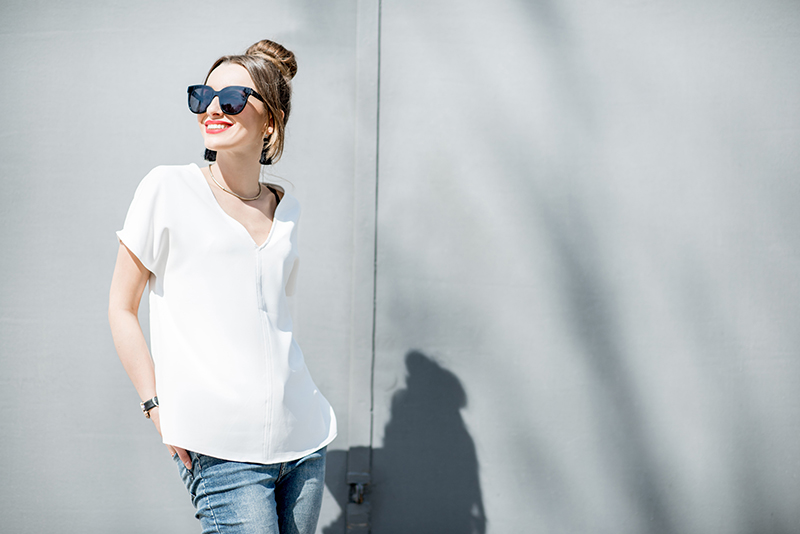
Especially during the summer, when UV radiation is stronger, UV-protective sunglasses and contact lenses are highly recommended.
We are exposed to higher levels of UV radiation than other countries due to our latitude, the thinner ozone layer and more. Every time we go out into the sun without eye protection, we risk developing an eye disorder later in life. Take the necessary measures to protect your eyes against harmful UV rays by wearing UV- protected contact lenses, sunglasses and hats etc as well as using sunscreen for your skin!
UV-Blocking Sunglasses In New Zealand, there are no clear standards set for the sale of sunglasses like in Australia. However, for UV protection, it is recommended to choose sunglasses that meet the Australian standard of having UV-cut functionality. Click here for further details.
UV-Blocking Contact Lenses UV-blocking contact lenses also offer protection. However, we recommend wearingUV-blocking sunglasses in addition to contact lenses for extra eye protection.
Popular UV-Blocking Contact Lenses
Qieto1day (30 Pack) - Daily Contact Lenses
Experience a comfortable fit, affordable Price and UV protection! These are the perfect choice for those seeking wallet-friendly but quality contact lenses!
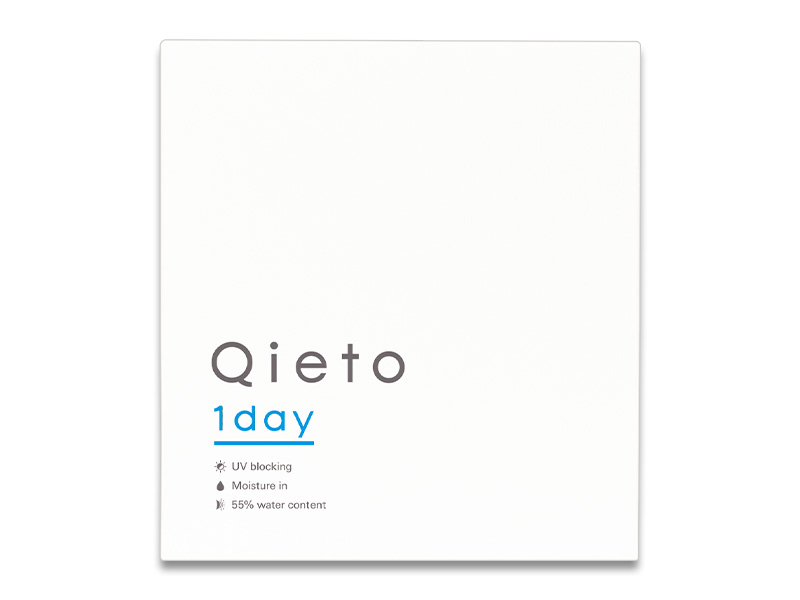
| Product | Qieto1day (30 Pack) |
| Type | Daily |
| Packaging | 30 lenses per box |
| Base Curve | 8.7 mm |
| Diameter | 14.2 mm |
| Content | Ocufilcon D & 55% water |
| UV Cut Rate | UV-A about 84% (Our actual measurement value at -3.00D)UV-B About 98% (Our actual measurement value at -3.00D) |
| Base Price | NZ$24.90 |
Qieto1day Rich (30 Pack) - Daily Contact Lenses with Silicone Hydrogel
If you are looking for super comfortable and moisture rich contact lenses, then look no further! Qieto1day Rich is made of high-spec Silicone Hydrogel and offers UV Protection, retains long lasting moisture with an affordable price to top it off!
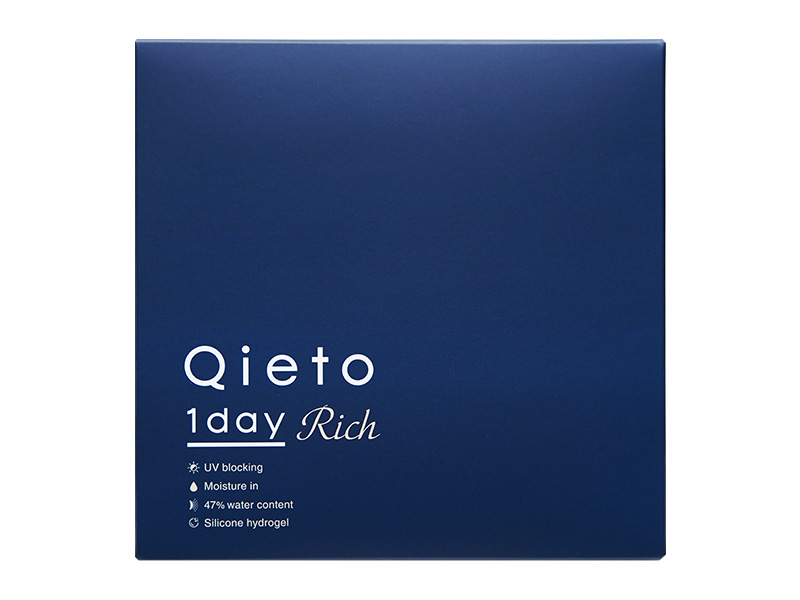
| Product | Qieto1day Rich (30 Pack) |
| Type | Daily |
| Packaging | 30 lenses per box |
| Base Curve | 8.8 mm |
| Diameter | 14.1 mm |
| Content | Olifilcon B (Silicone Hydrogel) & 47% Water |
| UV Cut Rate | UV-A About 84% (Our Actual Measurement Value At -3.00D)UV-B About 96% (Our Actual Measurement Value At -3.00D) |
| Base Price | NZ$34.90 |
Acuvue Oasys (6 Pack) - Fortnightly Contact Lenses with Silicone Hydrogel
One of the most popular contact lenses in the market. It’s made of silicone hydrogel, a premium material for contact lenses.
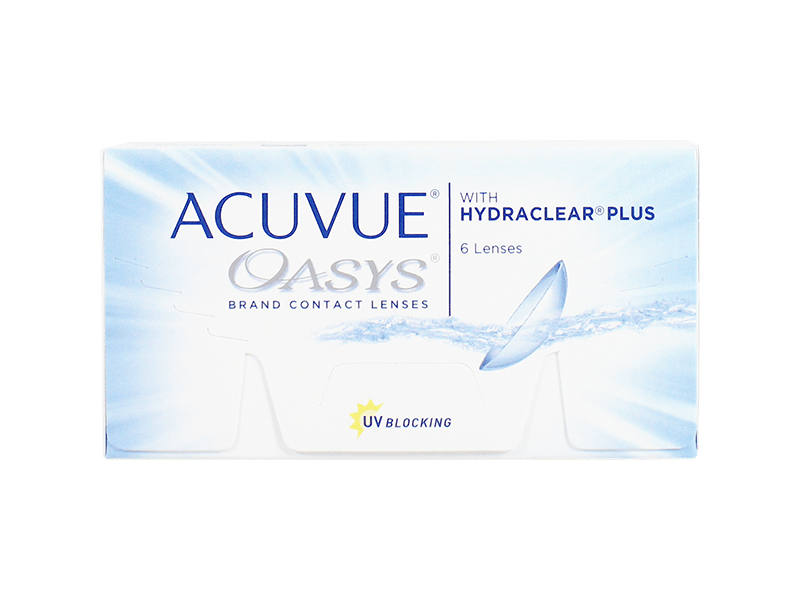
| Product | Acuvue Oasys (6 Pack) |
| Type | Fortnightly |
| Packaging | 6 lenses per box |
| Base Curve | 8.4 mm / 8.8 mm |
| Diameter | 14.0 mm |
| Content | Senofilcon A (Silicone hydrogel) & 38% water |
| UV Cut Rate | UV-A About 96% / UV-B About 99% |
| Base Price | NZ$42.90 |
Find all UV-blocking contact lenses.
What to Do During Swimming and Beach Activities?
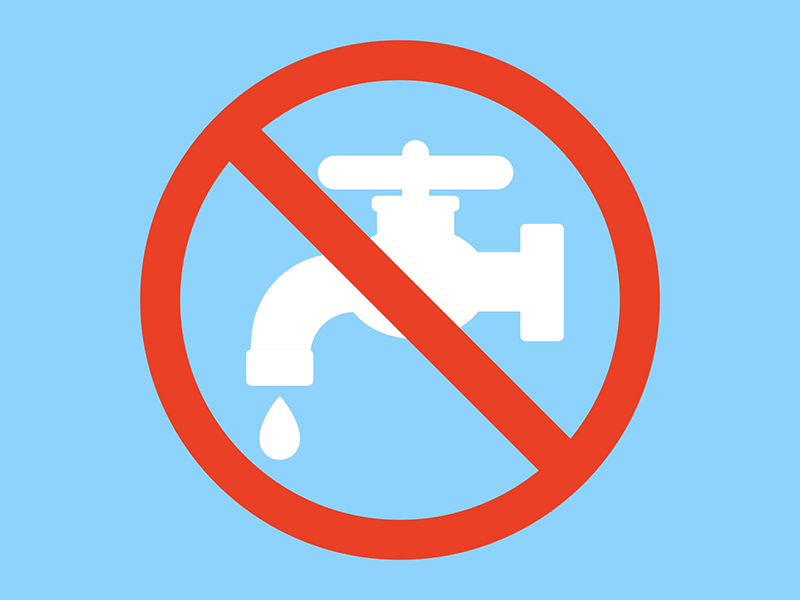
Have you ever enjoyed swimming in the pool or in the ocean with contact lenses on?This can actually be very dangerous.
As mentioned in other blog posts, water environments can contain harmful microorganisms that may stick to your contact lenses, increasing the risk of eye infections. One of the biggest dangers is Acanthamoeba keratitis. This disease is caused by a microorganism called Acanthamoeba, which is commonly found in soil, ponds, rivers, lakes, and even in bathroom water. Acanthamoeba keratitis can cause painful corneal infections and, in the worst case, can lead to blindness.
In addition to swimming in pools or at the beach, it is also important to remove your contact lenses when taking a shower or a bath for safety. Never store or rinse soft contact lenses with tap water!
Prevent Eye Dryness
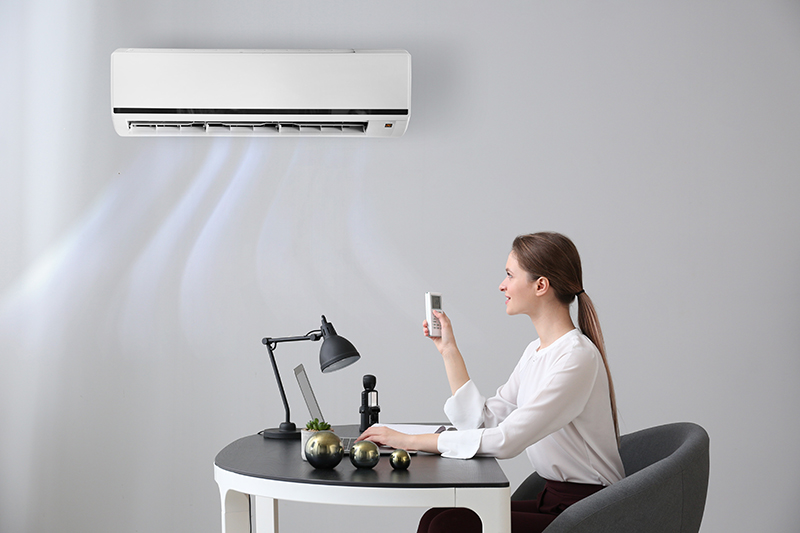
The dry air and heating systems in the fall and winter are common causes of dry eyes that many people experience, but summer also requires attention due to the prolonged time spent in air-conditioned indoor environments. Air conditioning lowers indoor humidity levels, which can cause the surface of the eyes to dry out more easily. Additionally, the intense UV rays of summer can damage the eyes and exacerbate dry eye symptoms.
Dry eyes can also be caused by long hours of device usage or wearing contact lenses for extended periods, both of which are often unavoidable in modern life. However, it is important to take preventive measures.
Avoiding prolonged use of electronic devices, giving your eyes regular breaks, consciously blinking, and using eye drops can all help prevent dry eyes. Additionally, it is essential to follow the correct procedures for contact lens use, including wearing time, cleaning, and storage. For individuals with severe dry eye symptoms, considering contact lenses made from silicone hydrogel materials is also recommended.
Be Careful About Where You Store Your Contact Lenses in Summer!
During the summer, when indoor temperatures can rise, please make sure to check the storage location of your contact lenses.Store your contact lenses at room temperature, away from direct sunlight (refrigeration is not necessary).
Things to Keep in Mind When Caring for Your Contact Lenses
In the summer, the secretion of sweat and sebum increases, so if you handle contact lenses with unclean hands, sweat and sebum can stick to the lenses, causing discomfort and poor vision. During the summer, when outdoor activities increase, the likelihood of dust attaching to your contact lenses also rises. When handling contact lenses, be sure to wash your hands thoroughly and dry them to prevent the accumulation of dirt and oil.
Additionally, to protect your eyes from dust, wearing sunglasses is effective, just like UV protection.
As the festive season approaches, it's important to ensure clear vision through your contact lenses so you can remember your events and gatherings vividly. However, there is always the risk of your contact lenses getting dirty or falling out while you're out. To prepare for any potential issues, we recommend bringing a spare pair of contact lenses with you.
Even Glasses Wearers Can Enjoy Easily with Daily Lenses!

Even if you usually wear glasses, the festive season with its many events and gatherings could be a good time to try wearing contact lenses on certain days. Many people use daily disposable contact lenses for this kind of occasional use, as they are convenient and easy to manage.
In the summer, when you're likely to sweat more or need sunglasses, contact lenses can be more practical.
However, since eyeglass prescriptions and contact lens prescriptions are different, be sure to get a prescription for contact lenses from your eye doctor before wearing them.
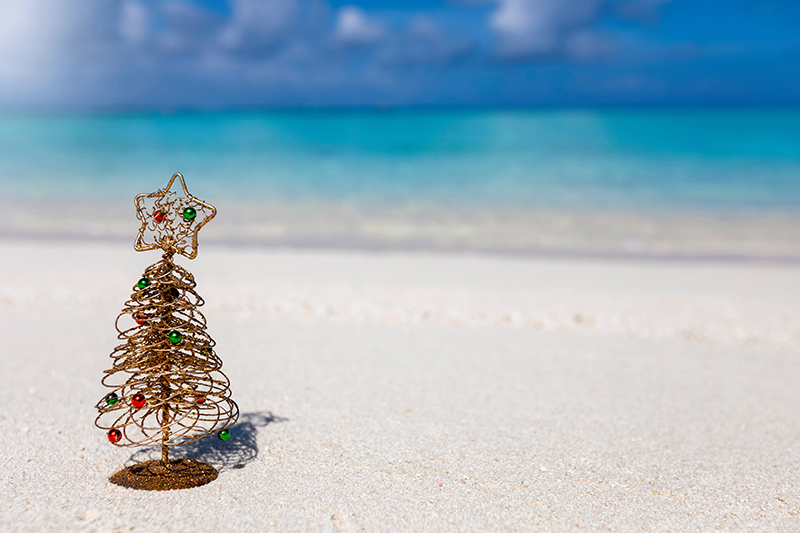
In this blog, we’ve shared some important tips for taking care of your eye health, especially during the summer months. By staying mindful of these tips in your daily routine, you can maintain healthy eyes and enjoy the upcoming festive season to the fullest.
Take care of your eye health, as well as your overall well-being, so you can fully enjoy the special moments of your events and gatherings with clear vision.
Wishing you a wonderful Christmas and a Happy New Year!
